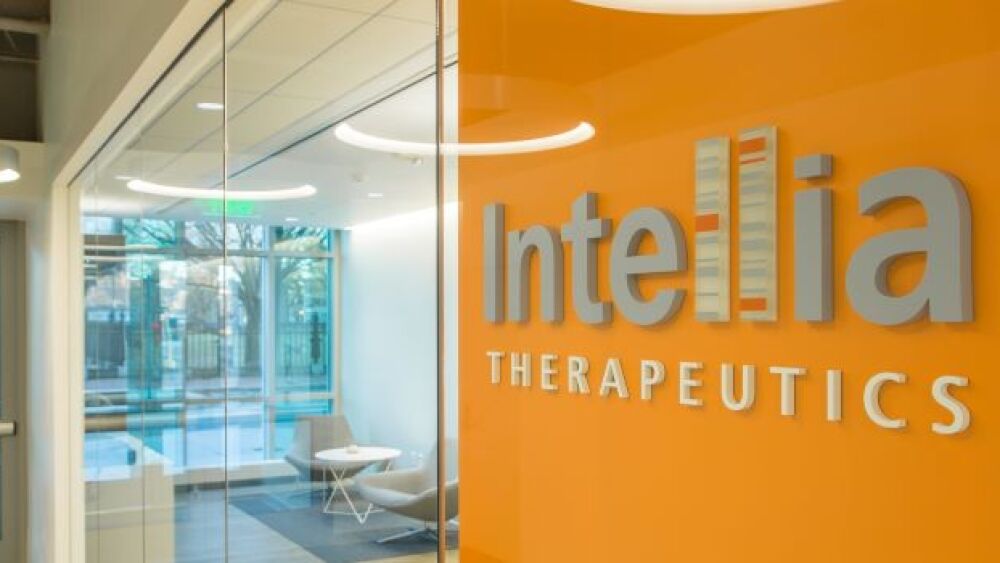NTLA-5001 is being developed for the treatment of acute myeloid leukemia (AML).
Courtesy Intellia Therapeutics
Intellia Therapeutics is celebrating another first today as the U.S. Food and Drug Administration (FDA) has accepted the Investigational New Drug (IND) application for NTLA-5001, its first wholly-owned ex vivo CRISPR genome editing candidate. NTLA-5001 is being developed for the treatment of acute myeloid leukemia (AML). Intellia made the announcement late Thursday morning.
“The FDA’s acceptance of our IND for NTLA-5001 is an important milestone in our pursuit of developing advanced cell therapies utilizing Intellia’s proprietary engineering platform to treat patients with cancer,” said Intellia President and Chief Executive Officer Dr. John Leonard.
AML, a cancer of the blood and bone marrow, is rapidly fatal without immediate intervention, and even with treatment, the five-year survival rate is less than 30%, making it one of the highest unmet needs in oncology today. It is the most common type of leukemia affecting adults.
“Importantly, NTLA-5001 is engineered to target the Wilms’ Tumor (WT1) antigen which is overexpressed in an estimated 90% of AML patients regardless of genetic subtype,” Leonard told BioSpace. “In addition, WT1 is highly expressed across many hematological and solid tumor types, providing significant potential to subsequently target a number of additional cancers.”
Authorization in hand, Intellia plans to move quickly and initiate patient screening for a Phase I/IIa study evaluating the asset in adults with persistent or recurrent AML who have previously received first-line therapy before the end of 2021.
" NTLA-5001 has been specifically engineered using Intellia’s differentiated and proprietary CRISPR/Cas9 genome editing technology to create a homogeneous T cell product with optimized cell health and function, which we hope will lead to better outcomes for patients as compared to current therapies,” Leonard shared.
It has been a busy summer for the Cambridge Massachusetts-based CRISPR leader. In June, Intellia announced positive early data from the first-ever patients to have their DNA edited with an in vivo CRISPR/Cas9 therapy delivered systemically. NTLA-2001, which is currently in phase I development for the treatment of hereditary transthyretin (ATTR) amyloidosis, is Intellia’s lead investigational in vivo candidate.
On the other side of the gene editing coin, Intellia’s ex vivo programs are aimed at developing potentially curative therapies for both cancer and autoimmune diseases. In March 2020, the FDA accepted the IND for the company’s other lead ex vivo asset, OTQ923, which is also now in phase I clinical development for the treatment of sickle cell disease (SCD). Intellia is partnered with Novartis on this one, making NTLA-5001 the first ex vivo IND acceptance where the company is going it alone.
“WT1, the target of NTLA-5001, is an intracellular antigen which would be inaccessible by current CAR-T approaches, further differentiating NTLA-5001 from other treatment options in development,” Leonard stated, adding that Intellia expects it to have an improved safety profile over other AML T cell therapies due to the minimal expression of the WT1 target in the bone marrow.
Featured Jobs on BioSpace






